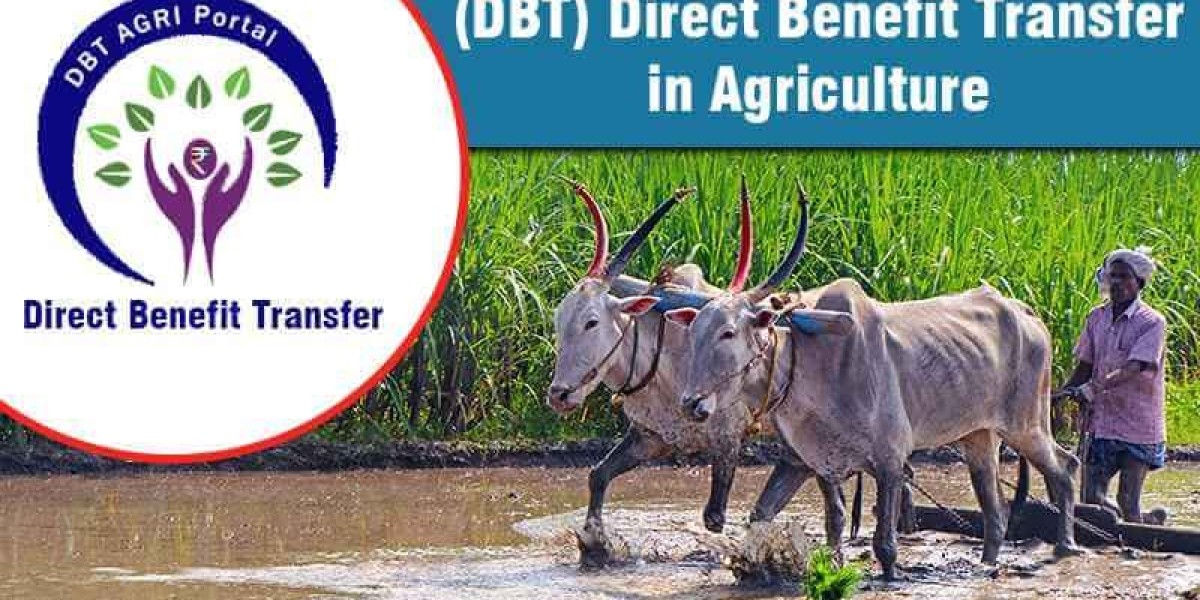In the realm of Indian agriculture, two significant initiatives have emerged as game-changers: Direct Benefit Transfer (DBT) and the PM Kisan Scheme. These initiatives represent a paradigm shift in the way government support reaches farmers, aiming for efficiency, transparency, and empowerment. Let's delve into how these two keywords are revolutionizing the agricultural landscape of India.
Direct Benefit Transfer (DBT)
Direct Benefit Transfer, commonly known as DBT, is a revolutionary scheme introduced by the Indian government to transfer subsidies directly to the beneficiaries' bank accounts. This method ensures that the intended recipients receive the benefits without any intermediaries, thereby reducing leakages and ensuring transparency. In the agricultural sector, DBT has been instrumental in various subsidy schemes like fertilizer subsidy, food subsidy, and agricultural input subsidies.
The implementation of DBT agriculture has numerous advantages. Firstly, it eliminates the role of middlemen and corrupt practices, ensuring that farmers receive the full benefit intended for them. Secondly, it promotes financial inclusion by encouraging farmers to open bank accounts, thereby bringing them into the formal banking system. Thirdly, it facilitates better targeting of beneficiaries, as subsidies are directed only to those who are eligible, reducing the burden on the government exchequer. Lastly, DBT promotes digitalization in rural areas, fostering the adoption of technology and digital payment systems.
Despite its numerous benefits, the implementation of DBT in agriculture comes with its set of challenges. One of the major challenges is the lack of proper infrastructure in rural areas, including internet connectivity and banking facilities. Moreover, there is a need for robust grievance redressal mechanisms to address issues related to incorrect beneficiary identification or non-receipt of subsidies. Additionally, there is a need for capacity building among farmers to enable them to navigate the digital landscape effectively.
PM Kisan Scheme
The PM Kisan Scheme is another landmark initiative aimed at providing direct income support to farmers. Under this scheme, small and marginal farmers are entitled to receive a fixed income support of Rs. 6000 per year, payable in three equal installments. The scheme seeks to provide financial assistance to farmers to meet their immediate agricultural needs and improve their overall income.
The PM Kisan Scheme has garnered widespread praise for its direct approach in addressing the financial needs of farmers. By providing income support directly to farmers' bank accounts, the scheme ensures timely assistance without any bureaucratic delays or leakages. Moreover, the scheme has significantly benefited small and marginal farmers who often struggle to access formal credit or government support.
The impact of the PM Kisan Scheme on the lives of farmers has been profound. The financial assistance provided under the scheme has helped farmers in meeting their agricultural expenses, purchasing seeds, fertilizers, and other inputs, thereby enhancing agricultural productivity. Moreover, the scheme has provided a sense of security to farmers, knowing that they have a reliable source of income to fall back on in times of need.
However, like any other government scheme, the PM Kisan Scheme also faces implementation challenges. There have been issues related to the identification of beneficiaries, with some deserving farmers being left out due to administrative lapses. There is also a need for greater awareness and outreach to ensure that all eligible farmers avail the benefits of the scheme. Moreover, there is a need for periodic revision of the income support amount to account for inflation and rising input costs.
In conclusion, the convergence of Direct Benefit Transfer (DBT) and the PM Kisan Scheme represents a transformative approach towards agricultural development in India. By leveraging technology and direct income support, these initiatives aim to empower farmers, enhance agricultural productivity, and ensure inclusive growth. However, there is a need for continuous monitoring and course correction to address implementation challenges and realize the full potential of these schemes in transforming the lives of farmers and revitalizing Indian agriculture.








